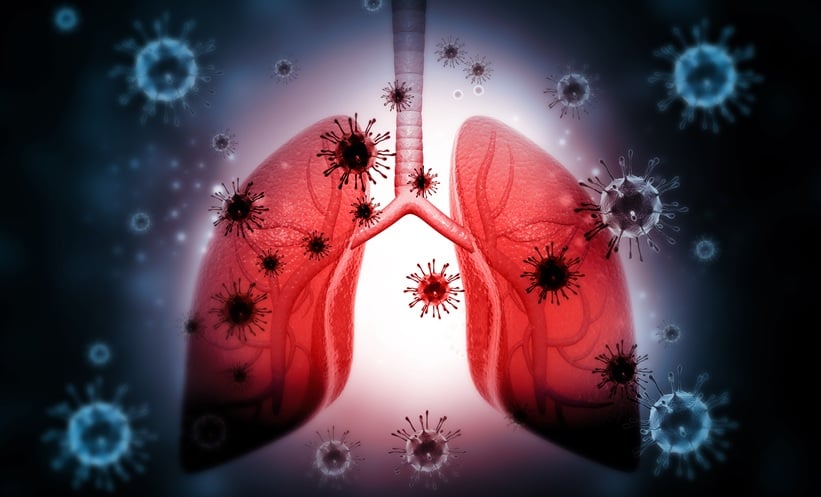RESPIRATORY viral infections such as influenza and COVID-19 may trigger the reactivation of dormant breast cancer cells, accelerating metastatic progression and increasing mortality risk in cancer survivors, according to new findings.
Breast cancer remains the second most common malignancy worldwide, with most deaths resulting from metastatic disease often following long periods of clinical dormancy. To investigate the impact of respiratory infections on this process, researchers conducted mouse experiments alongside analyses of large human datasets. In murine models, investigators examined how influenza and SARS-CoV-2 infections disrupted disseminated cancer cell dormancy in the lungs. Parallel epidemiological analyses of cancer survivors were performed using the UK Biobank and Flatiron Health databases, encompassing both all-cancer cohorts and breast cancer-specific populations.
Results from the animal models revealed that both influenza and SARS-CoV-2 infections caused dormant breast cancer cells in the lungs to switch to a proliferative state within days, leading to a dramatic 100-fold expansion into metastatic lesions within 2 weeks. This transition was driven by IL-6-mediated inflammation and sustained by immune modulation, with CD4+ T cells inhibiting CD8+ T cell activation and cytotoxicity. Importantly, HER2+ tumour presence further amplified this immunosuppressive effect.
Complementing these experimental findings, human cohort analyses demonstrated that SARS-CoV-2 infection substantially increased cancer-related mortality and the risk of metastatic lung disease in survivors. The risk peaked in the months immediately following infection, mirroring the temporal dynamics observed in mouse models.
The study highlights how viral infections can act as potent disruptors of tumour dormancy, promoting metastatic relapse in vulnerable populations. The authors note that existing therapies, including IL-6 receptor antagonists and JAK1/2 inhibitors already approved for severe COVID-19 management, may offer potential avenues to reduce infection-induced cancer progression, though clinical validation will be required.
Strategies to mitigate infection-related risks in cancer are urgently needed , particularly in the context of emerging and seasonal respiratory pathogens.
Reference
Chia SB et al. Respiratory viral infections awaken metastatic breast cancer cells in lungs. Nature. 2025; DOI:10.1038/s41586-025-09332-0.








